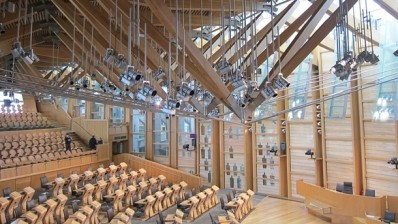Business rate appeal block could cost small businesses £700m

Under the 'reasonable professional judgement' provision within the Government's 'Check, challenge, appeal' consultation for the forthcoming business rates revaluation, ratepayers will be unable to argue against a rates bill if its margin of error was inside 15 per cent.
According to eight lobby groups, including the British Hospitality Association (BHA), the British Beer & Pub Association (BBPA) and the Association of Licensed Multiple Retailers (ALMR), even a small percentage difference could mark a difference in whether a firm pays something or nothing at all, leading to small firms potentially paying out an additional £700m over the next five years.
The campaigners say that because small businesses are currently given rate relief for low-value properties, they could be forced to pay if the Valuation Office Agency overvalued them and under the proposed changes would have no means of contesting it.
Major cost
BHA chief executive Ufi Ibrahim said: “The impact of the forthcoming business rate revaluations and proposed changes to the transitional relief scheme will affect the hospitality and tourism industry's ability to compete and provide the 100,000 new jobs that we projected to deliver by the end the decade. Business rates are a major cost for our hotel members, whose premises are generally valued on a turnover based metric, and for our restaurant members, who more usually rent their premises."
“Allowing appeals to be dismissed on the vague and subjective grounds of reasonable professional judgement only introduces a further element of uncertainty to what is an already complicated process," said ALMR chief executive Kate Nicholls.
"This is doubly difficult for pubs that already see their rateable value based on the assumption of fair maintainable trade. A number of the ALMR’s smaller members have already had to have their rateable values corrected, so we are seeing inaccuracy in a system that uses hypothetical trading as a model. If the Government wishes to ensure accuracy and fairness for businesses, then it must abandon the notion of introducing another indistinct element that will only complicate matters further.”
The groups want the Government to look again at the clause to ensure no impact on small businesses.
“The BHA is calling on the Government to revert to the 2010 transitional relief scheme to ensure that no business experiences an increase greater than 12.5 per cent next year, as has applied since the 2000 revaluation and for which British businesses had budgeted. The Government should undertake a fundamental review of business rates before the next revaluation," said Ibrahim.
"For a business struggling to make ends meet, 15 per cent could make a real difference and should their appeal be successful, they should receive the full refund," added BBPA chief executive Brigid Simmonds.
The fine-print:
Using official VOA data, research by Daniel Watney LLP found that qualifying small businesses whose properties had a rateable value (RV) between £12,000 and £15,000 could overpay by up to £137m a year if this new rule is applied. Over the full five-year ratings cycle, this would work out at more than £689m. The full figure would also include business above the £15,000 threshold too – increasing the potential cost significantly.
Of those overpaying the £689m, there are many whose assessments would fall below 12,000RV and be totally exempt from rates if their assessment was reduced by up to 15 per cent, but under the proposed ‘reasonable professional judgement’ clause could be denied these reductions. Those that could qualify for total relief will instead pay out £431m of the £689m total over five years.


























